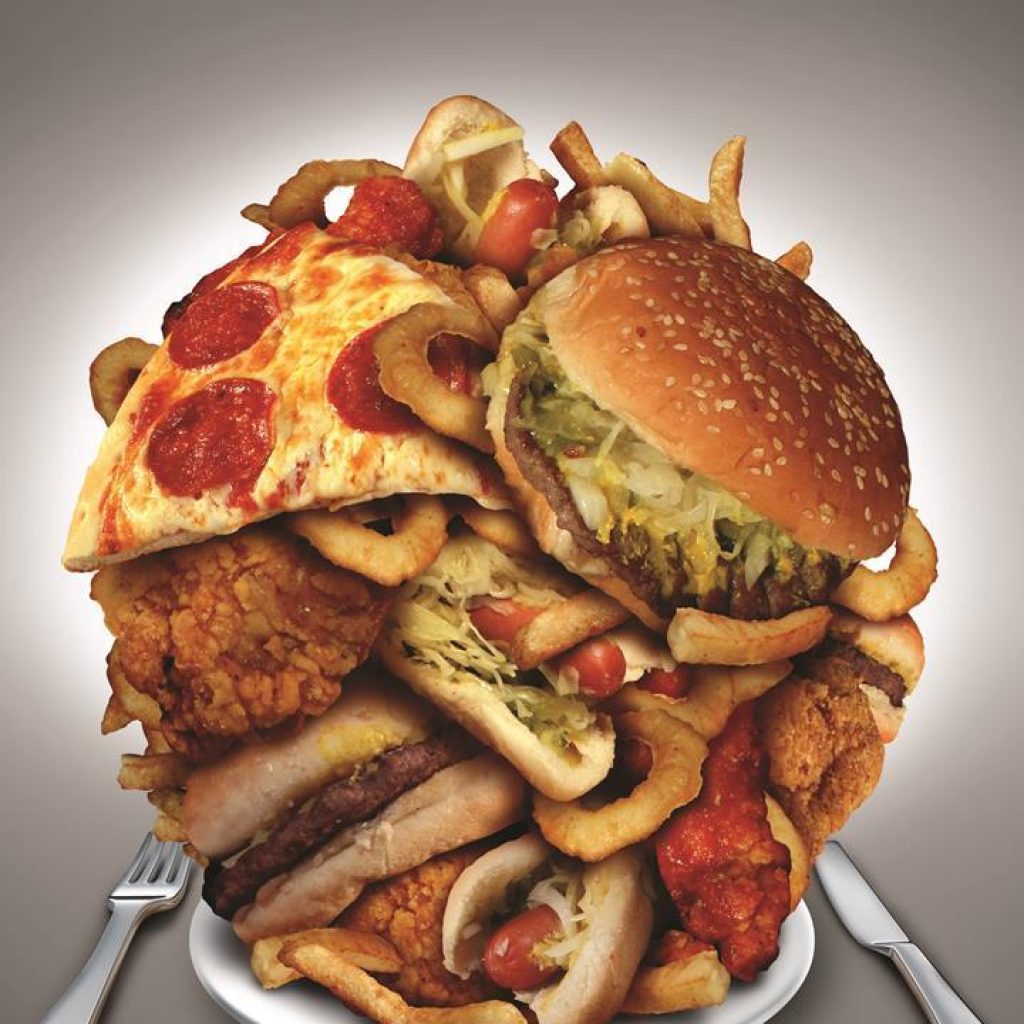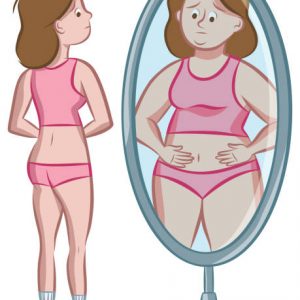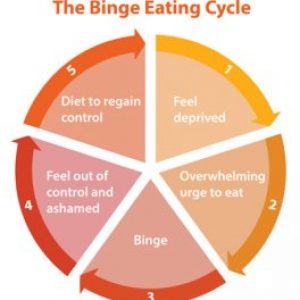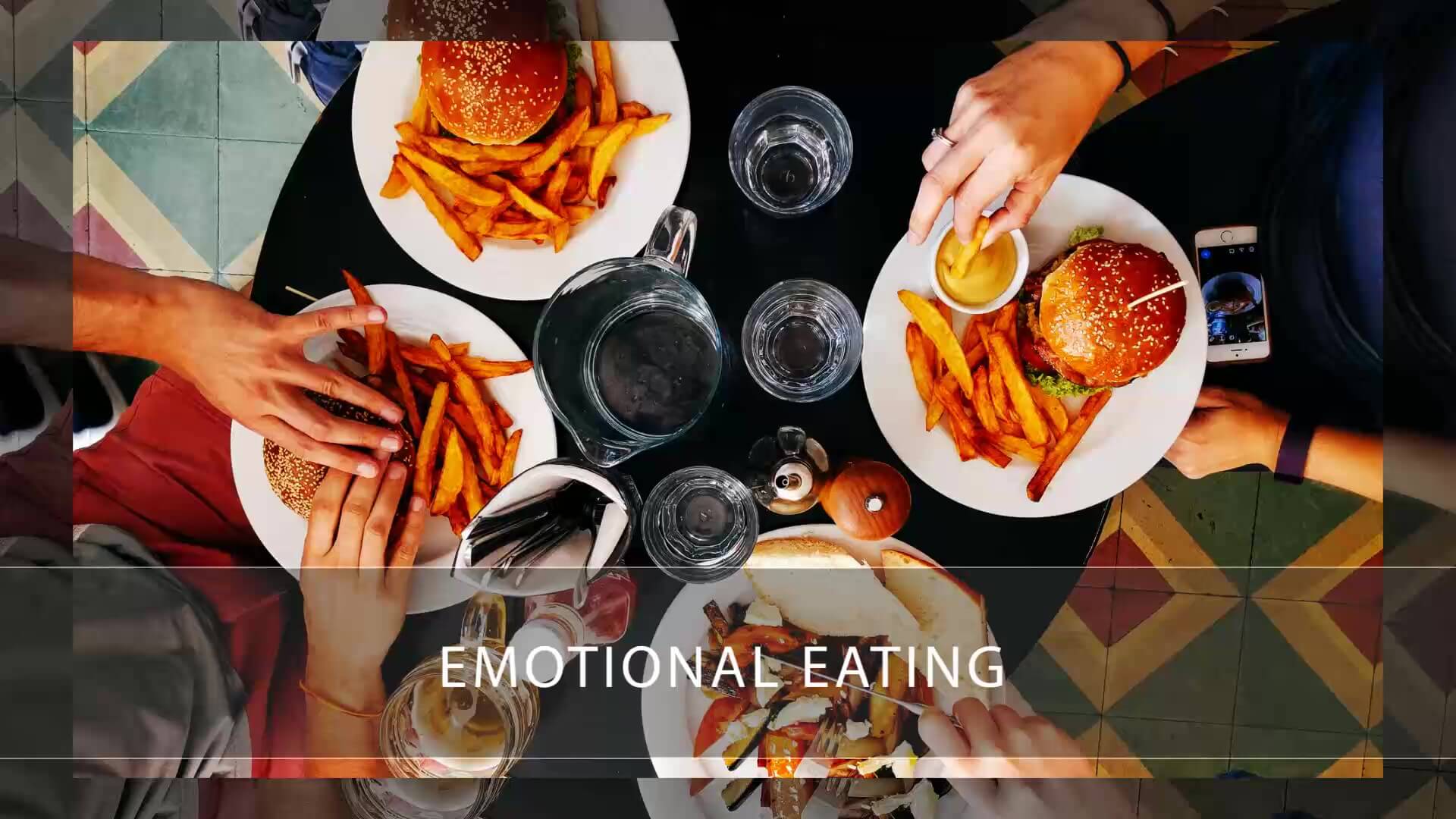What is BED? Binge Eating Disorder
Eating more than most people would in a short period of time.

Lack of control over eating.
Any 3 of the following:
- Rapidly eating without much thought into it
- Scarfing down large amounts of food when you’re not even physically hungry
- Overeating till uncomfortably full
- Sneaking food, eating alone because of embarrassment over overeating
- Feeling depressed, disgusted, or feeling guilty after eating
Causes and Overlapping Mental Health Concerns:
- Anxiety and Depression
- PTSD
- Genetic predisposition to perfectionism, black/ white thinking, dissociation, and impulsivity
- Restrictive eating patterns, and a history of dieting
- Weight bullying and history of body shame

Eating Disorders are serious but treatable mental illnesses that can affect anyone regardless of gender, age, racial and ethnic identity, sexual orientation or socio-economic background[[iv]. Many people with an Eating Disorder are never diagnosed but suffer significant personal and family distress. The social and economic costs of untreated Eating Disorders are similar to those of depression and anxiety, with debilitating physical and mental health effects comparable to psychosis and schizophrenia[v] (Statistics Canada, 2016).
Binge-eating disorder is a mental disorder that affects the way you eat. With this disorder, you eat a lot of food in a short period of time (binge) on a regular basis. You can’t control what you eat or how much you eat, but you feel distressed, disgusted, guilty or depressed after eating. Binge eating may be a response to low mood or depression, anxiety, stress or feeling “numb.” The difference between binge-eating disorder and bulimia is that people living with binge-eating disorder don’t try to purge the food they just ate. Binge-eating disorder is sometimes called “compulsive overeating (Statistics Canada, 2016).” CMHA Binge Eating

This cycle of binge eating can lead to shame and guilt. Shame and what people say:
- I was bad today. (meaning that they ate something that they shouldn’t have)
- I’m embarrassed to go out because I feel too fat.
- I can’t fit into my clothes anymore, and feel disgusting.
- I’m ashamed to eat in public because people may stare at me.
- I’m ashamed to be seen in public.
- I am what I weigh; the scale determines my worth.
- I envy thin people and equate their appearance with success; my body implies failure.
- I feel “less than” because of my body size.
- If only I could lose weight and get thin, all of these negative feelings would disappear.
What is Shame?
- Connection gives life meaning
- Shame is fear of disconnection
- Secrecy
- Silence
- Judgement
The less we talk about it, the more control it has over our lives.
Our next post is on implementing Treatment for Emotional Eating.



